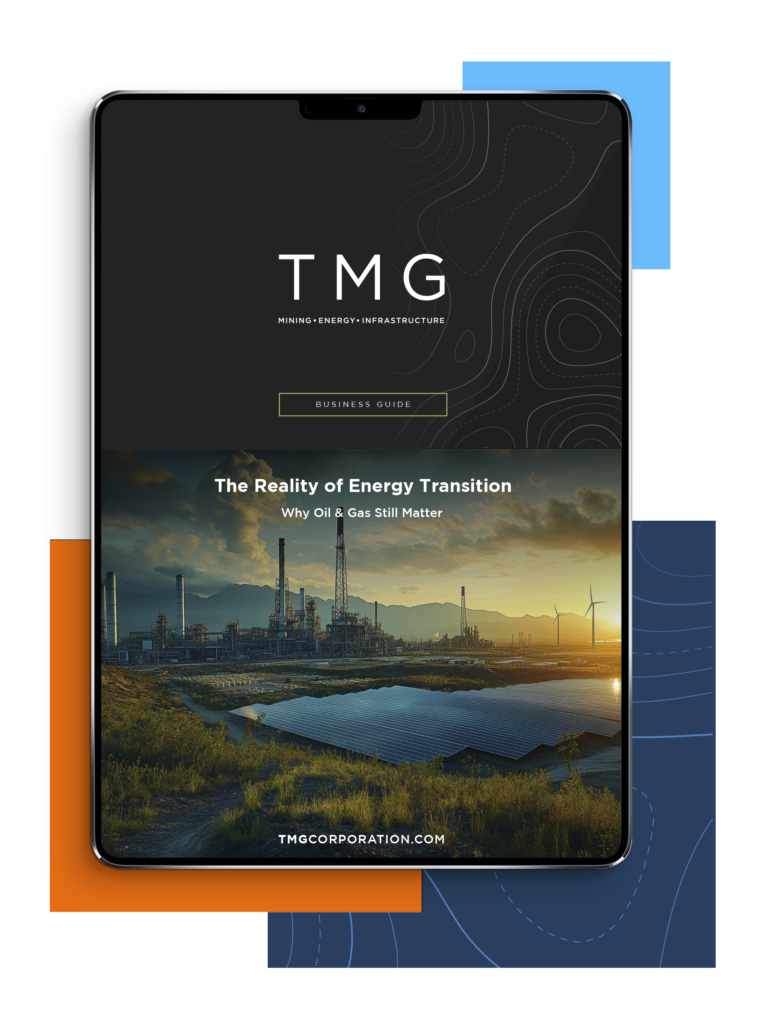Call Us Today: +1 866 205 2414
Energy security is the foundation of economic stability, national sovereignty, and global trade. As the world moves toward a more renewable-driven energy future, oil and gas’s critical role in shaping economic growth and geopolitical stability cannot be ignored. While renewables are expanding, the global economy remains deeply intertwined with hydrocarbons, and premature reliance on intermittent energy sources could create vulnerabilities that threaten financial stability and national security.
The ongoing energy transition is a complex balancing act. Countries that fail to secure reliable energy sources risk economic stagnation, while those dependent on energy imports face geopolitical leverage issues. Nations that successfully integrate a diversified energy mix—while maintaining strategic oil and gas infrastructure—will be best positioned to navigate the shifting energy landscape.
Energy is the lifeblood of economic development. Nations with reliable, affordable, and scalable energy sources experience faster industrial growth, increased productivity, and higher living standards. Oil and gas have historically provided the foundation for modern economies, supporting transportation, manufacturing, and electricity generation at a scale that renewables have yet to match.
Access to cheap and abundant energy is critical for developing nations to lift populations out of poverty. The World Bank estimates that more than 750 million people still lack electricity, primarily in sub-Saharan Africa and parts of South Asia. While renewables can contribute to decentralized power generation, grid-scale energy solutions—often powered by natural gas and oil—are essential to sustaining economic growth in these regions.
Energy dependence has long been a geopolitical vulnerability. Nations that rely heavily on energy imports are subject to supply chain disruptions, price volatility, and political leverage from energy-rich nations. In contrast, countries that maintain domestic energy production—particularly in oil and gas—enjoy greater economic and strategic autonomy.
The 1973 Oil Crisis and the 2022 European energy crisis are prime examples of how energy dependency can destabilize economies and threaten national security.
Energy independence does not mean abandoning global trade, but it requires a strategic approach to energy policy—one that prioritizes self-sufficiency while maintaining diversified energy partnerships.
While reducing reliance on fossil fuels is a priority for many governments, transitioning too quickly comes with its own geopolitical risks. Unlike oil and gas, which are produced and transported globally, renewable energy infrastructure is heavily concentrated in a few key regions—creating potential bottlenecks and new forms of energy dependence.
A diversified approach to energy security—including investments in nuclear, domestic oil and gas production, and renewable technology manufacturing—can help mitigate these risks.
One of the most effective ways to enhance energy security while supporting a lower-carbon future is through the expansion of natural gas infrastructure, particularly liquefied natural gas (LNG) and international pipelines.
LNG and pipeline expansion strategies ensure that energy remains affordable, reliable, and geopolitically secure, allowing nations to balance economic growth with environmental commitments.
Energy security is about more than just reducing emissions—it is about ensuring stable economies, protecting national sovereignty, and preventing geopolitical vulnerabilities. A successful energy strategy must account for both environmental goals and the realities of global energy demand.
The world is moving toward a more renewable future, but energy security must remain the top priority. Nations that maintain a balanced, strategic approach to energy policy—investing in domestic production, diversified trade partnerships, and infrastructure resilience—will be best positioned for long-term success.


President
Kenny MacEwen is President of TMG and a senior execution leader with over two decades of experience delivering complex projects across the mining, energy, and infrastructure sectors. With a foundation in mechanical engineering and a track record spanning both Owner and consulting roles, Kenny has led multidisciplinary teams through all phases of the project lifecycle—from early studies and permitting support through detailed engineering, construction, and commissioning. His experience includes overseeing large-scale programs at New Gold and Centerra Gold Inc., where he aligned technical, commercial, and operational objectives across high-value global portfolios.
At TMG, Kenny leads the integration of project delivery frameworks that support Owner-side governance, stakeholder engagement, and cross-functional execution. He is deeply involved in developing workface planning models, ensuring interface risks are actively managed, and advancing readiness strategies that position assets for seamless transition to operations. His leadership extends across EPC coordination, budget stewardship, and the application of risk-adjusted scheduling tools to maintain project momentum. Kenny is recognized for fostering team cohesion in high-pressure environments while ensuring technical rigor and delivery accountability remain front and center.